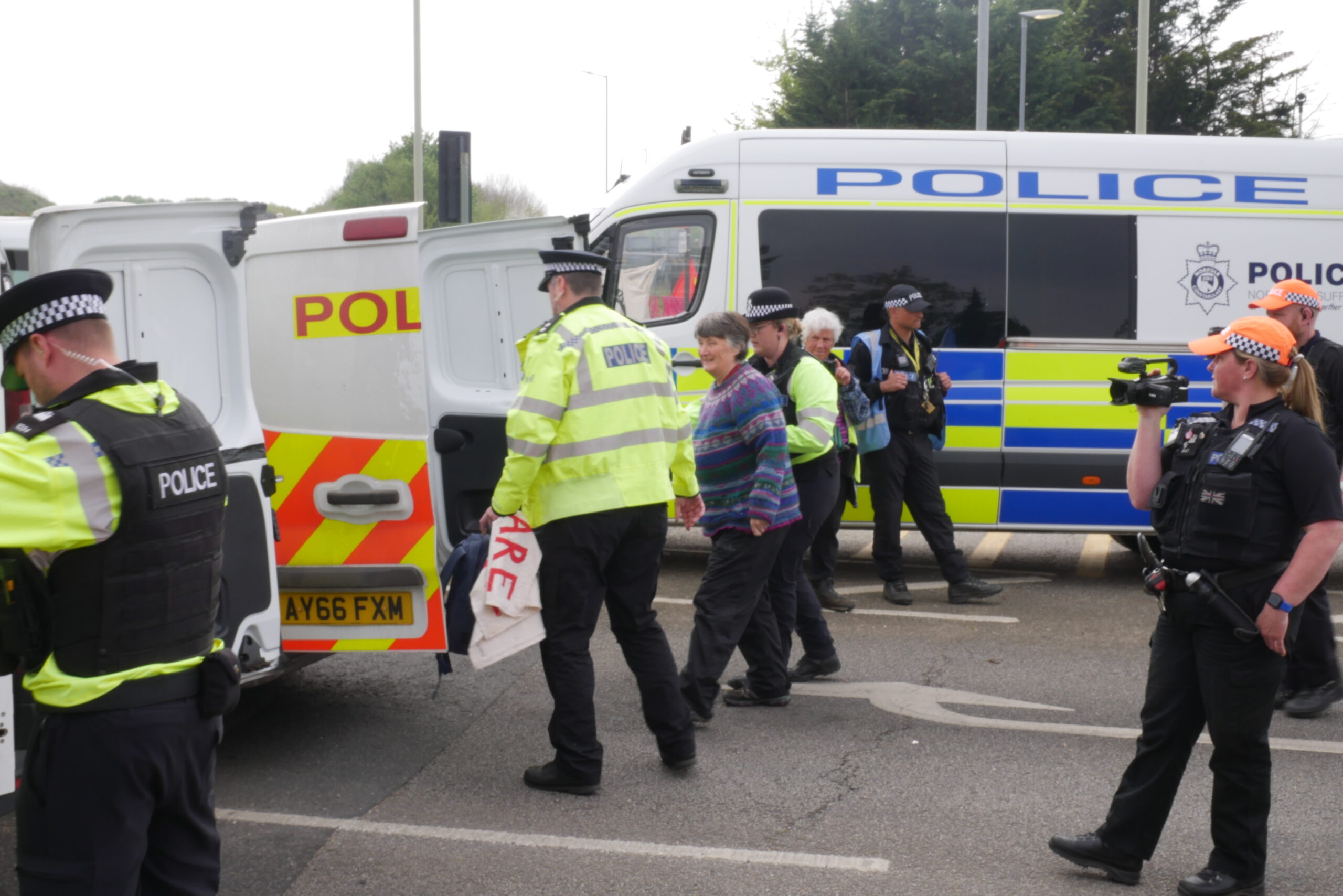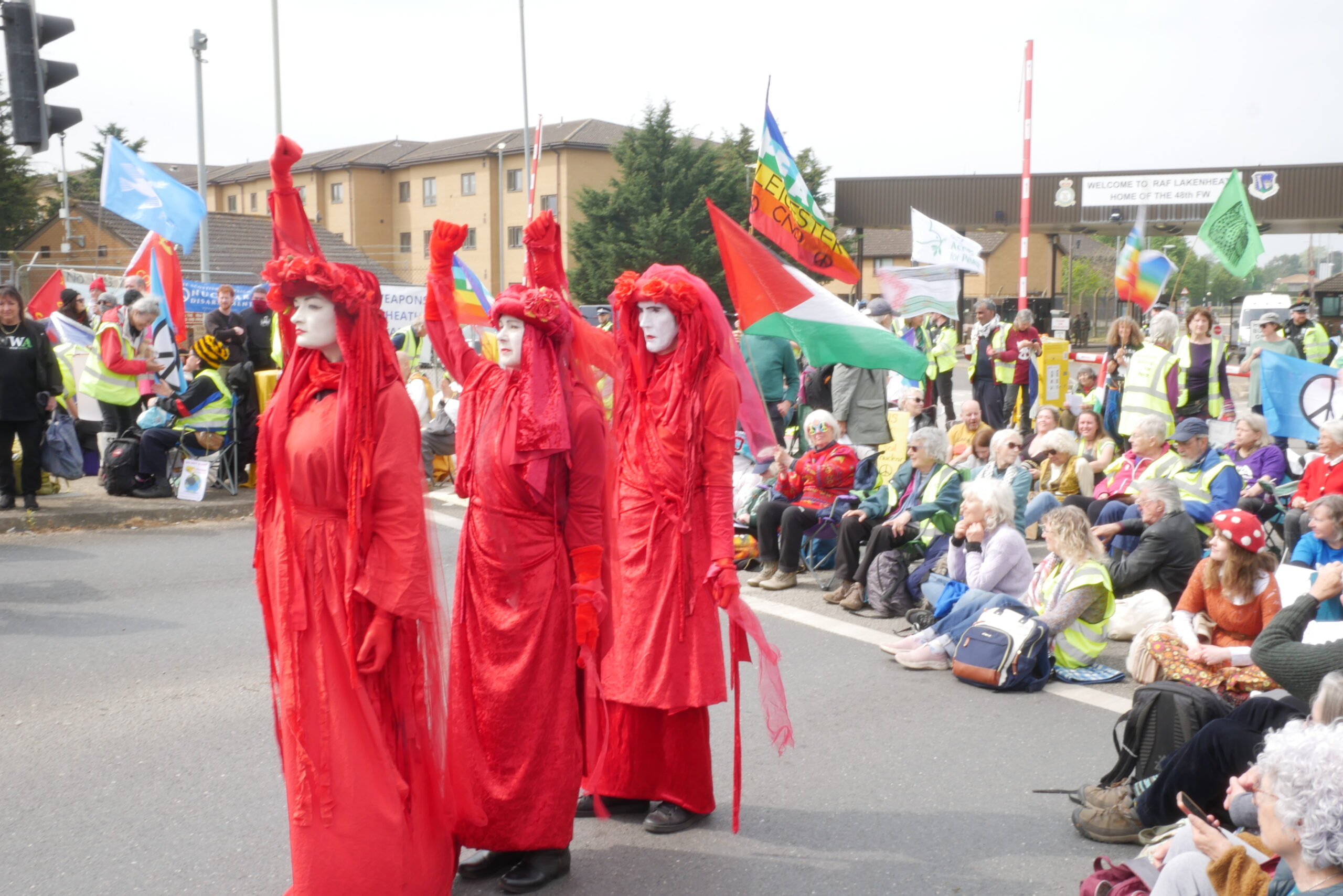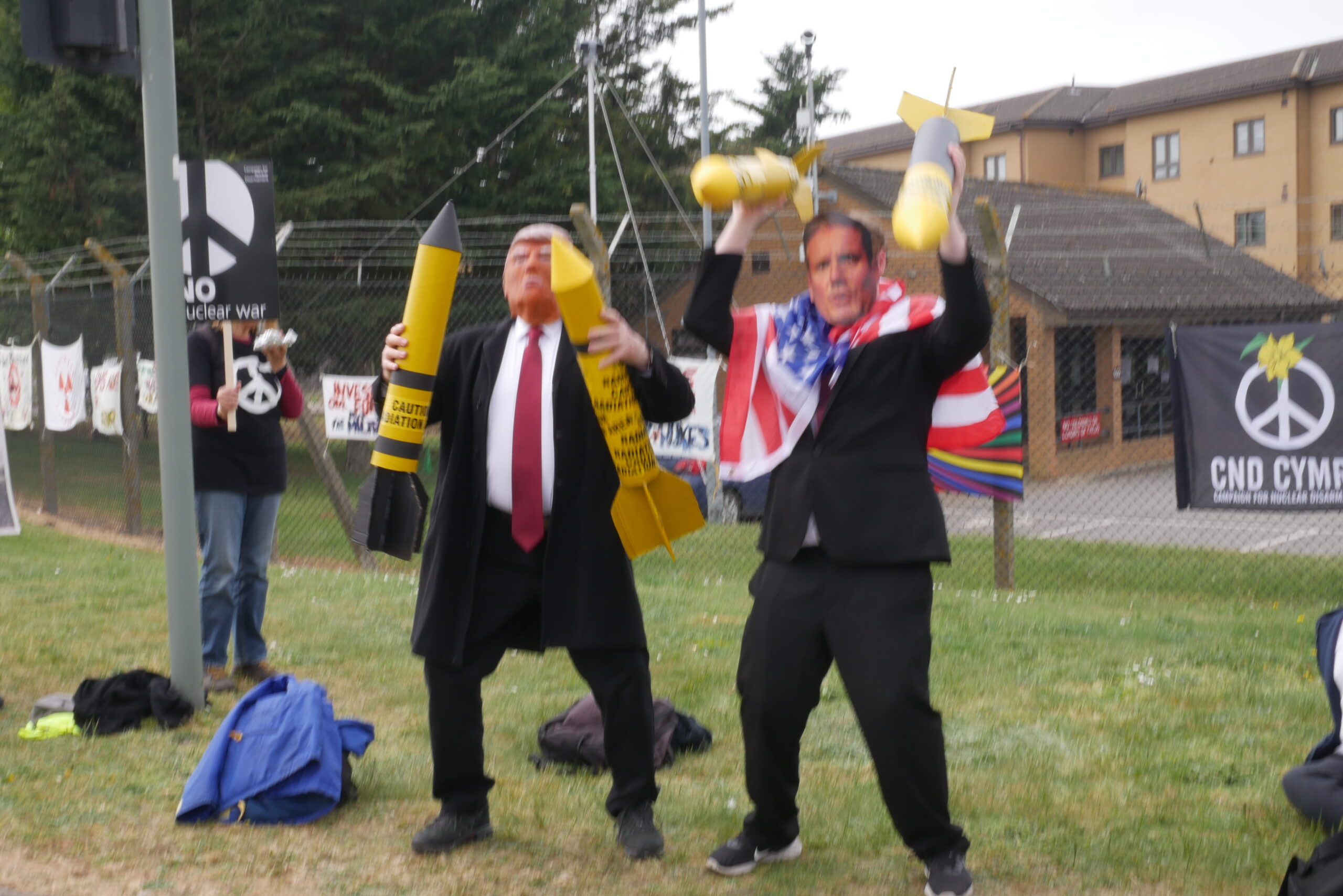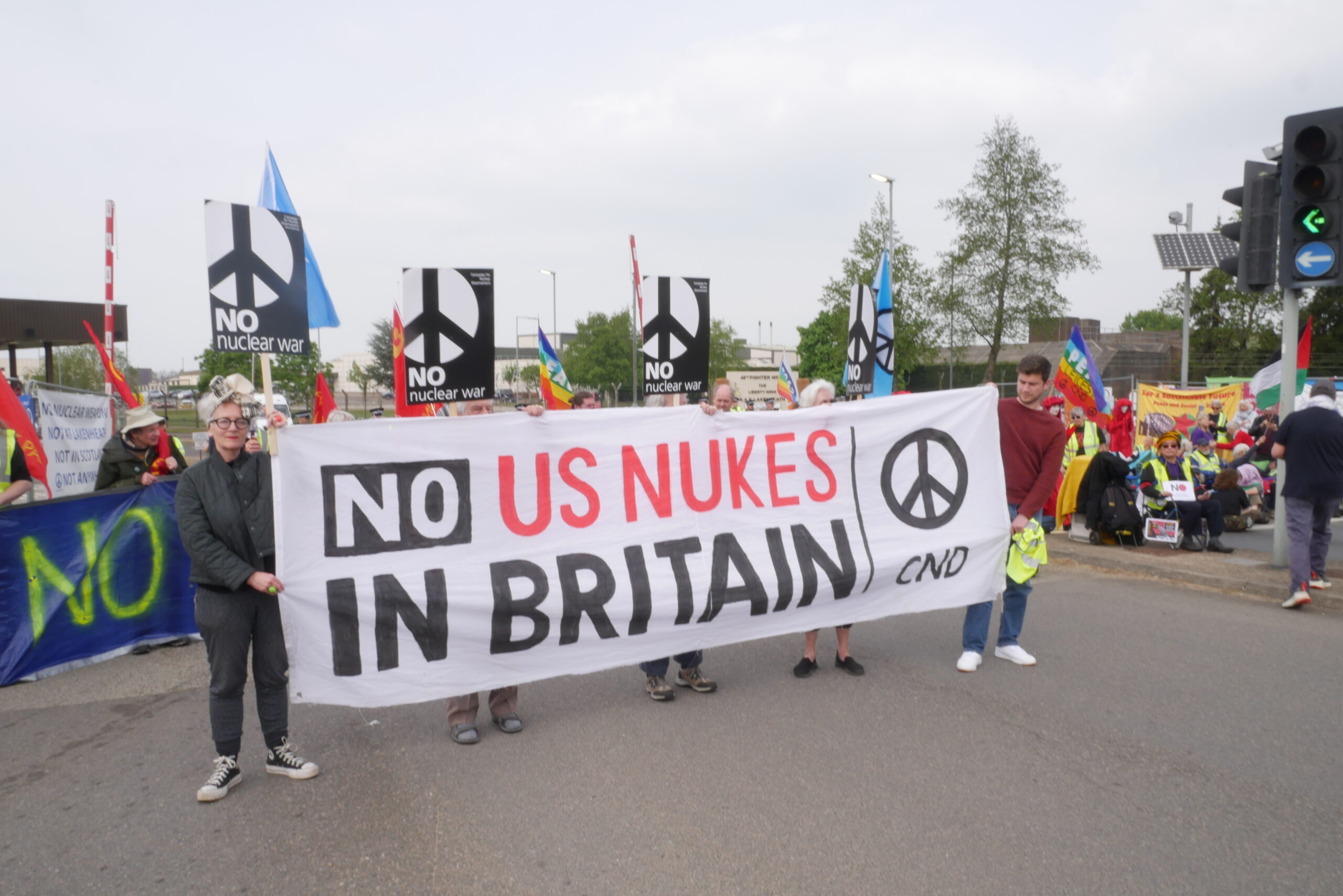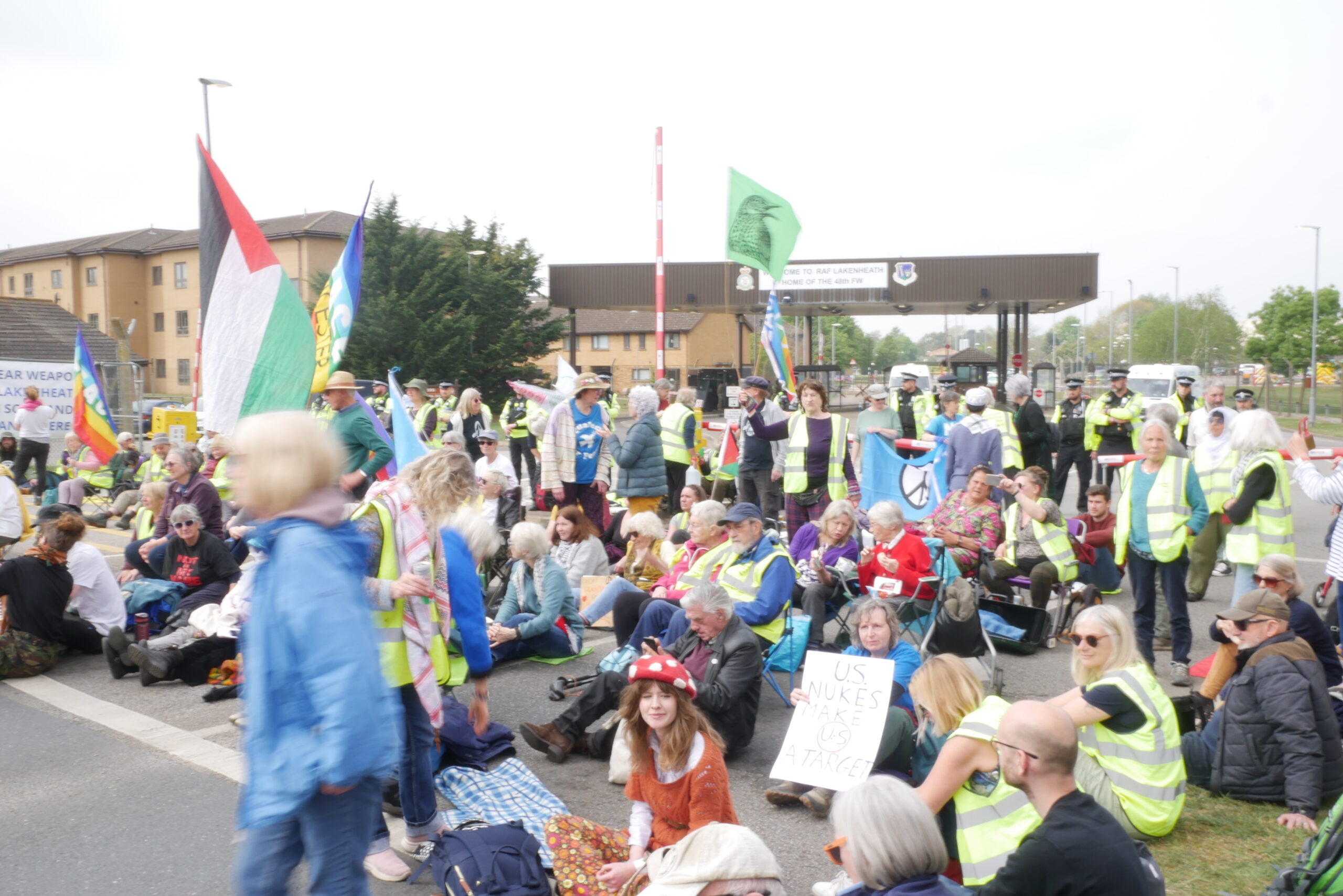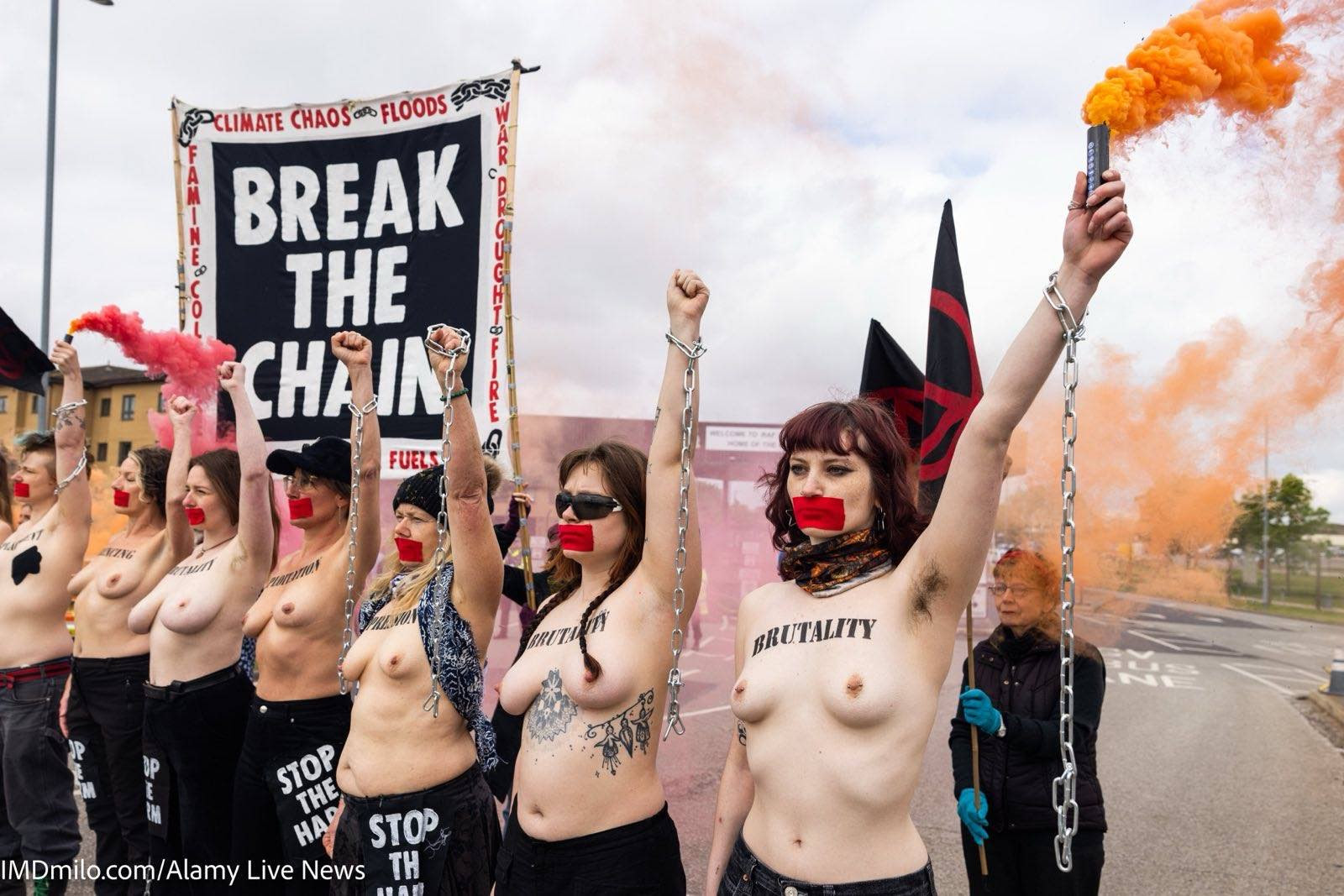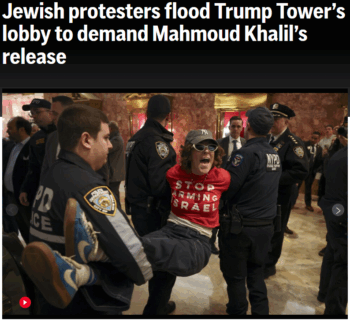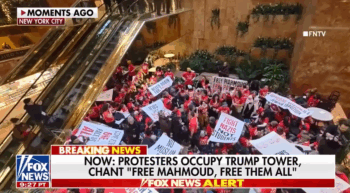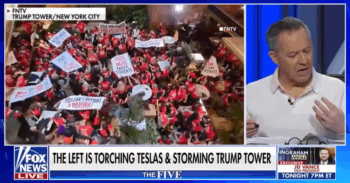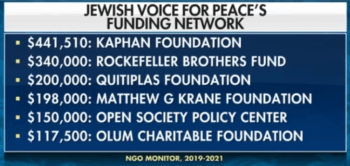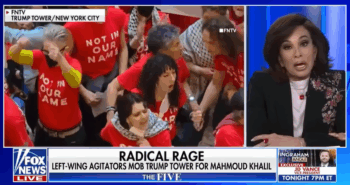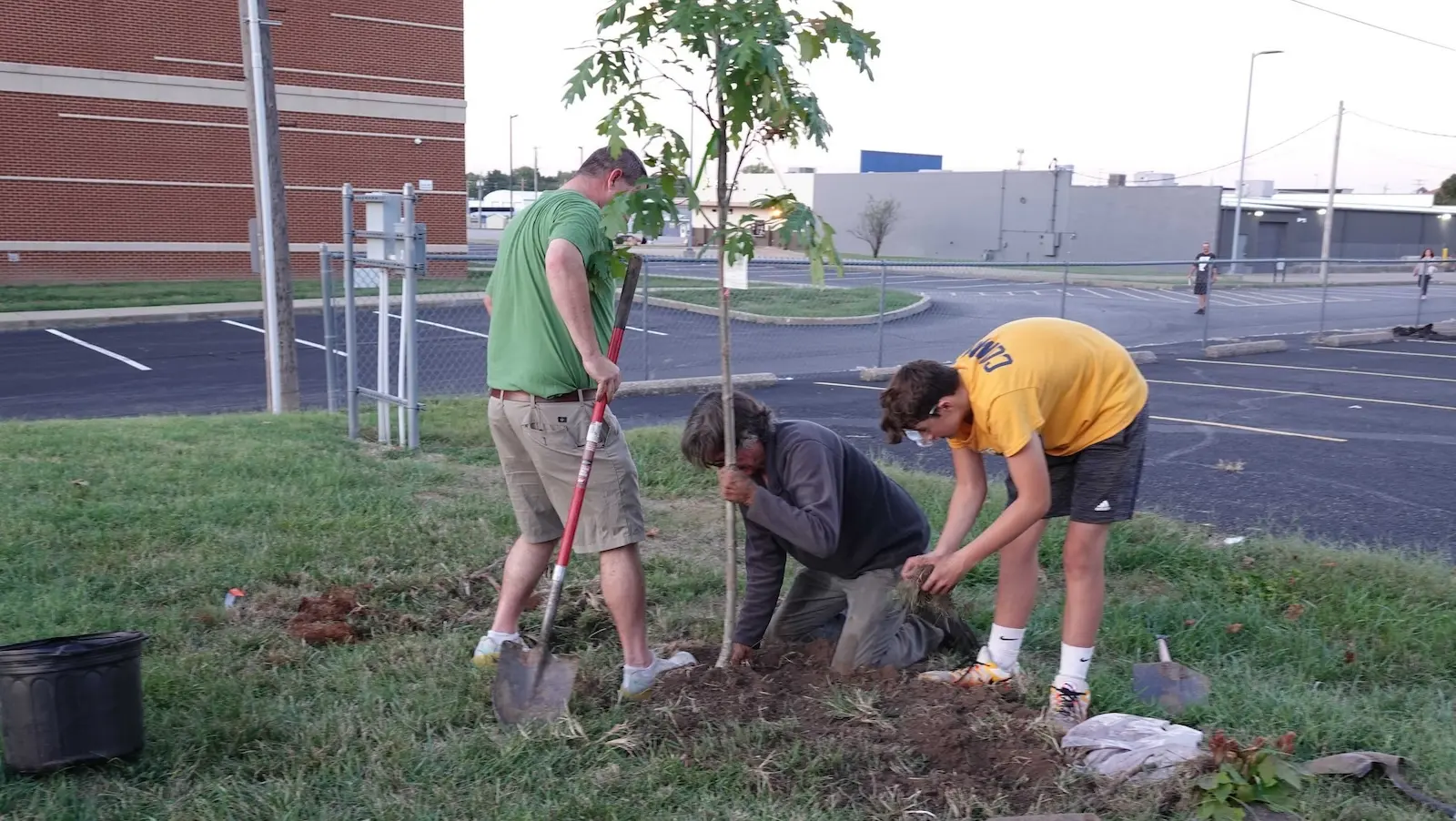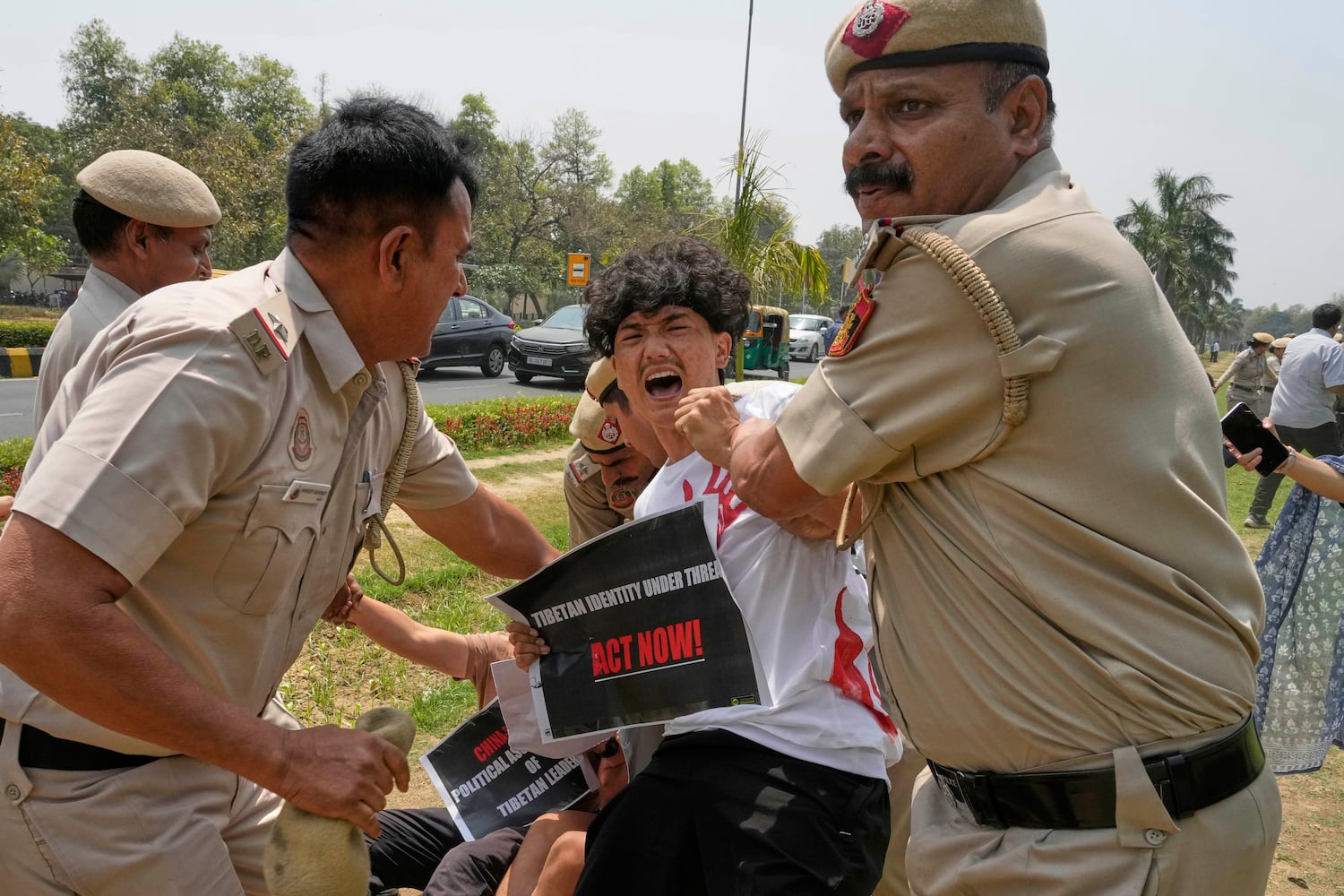At a fundraising gala, a charity peddled so-called ‘therapies’ forcing compliance, denying autonomy, and “grooming” children to suppress their behaviours and inner selves. Adults have been bullying children, and even violently restraining them in schools. Parents have forced dangerous bleach-based ‘cures’ on kids. This isn’t the far-removed reality of some distant, disgraceful UK times past. No, this is the shameful situation for Autistic adults and children in the UK today. Enter: Autistic Inclusive Meets (AIM) – a grassroots community group that’s been taking on the obscenely persisting ‘cure culture’ that still disgustingly pervades every nook and cranny of the nation’s consciousness around neurodivergence.
For over a decade, the non-profit has exposed and battled the unconscionable abuse meted out against Autistic people countrywide.
The Canary spoke to AIM CEO Emma Dalmayne about its work, and the ongoing menagerie of indefensible issues still affecting Autistic people today.
Autistic Inclusive Meets: a grassroots group by Autistic people, for Autistic people
Autistic Inclusive Meets (AIM) is a grassroots group that Emma co-founded in 2016. Officially, Emma and then co-director Paul Wady registered it in 2017. Its website describes how it’s staffed by:
a team of passionate and dedicated volunteers, committed to creating a supportive and inclusive environment for autistic individuals and their families. Our team consists of a diverse group of autistic individuals who are devoted to helping autistic people to live fulfilling lives. We provide a range of services and support, including information, advice, and practical assistance to help autistic people navigate the challenges of everyday life.
Emma is Autistic herself and her six children are all neurodivergent. She explained to the Canary that she’d started AIM in response to her Autistic youngest son, who’s now 17, getting bullied at school. The school had also been highly non-accommodating, to the point she’d decided to pull him out from mainstream education.
She’d begun by taking him to various home education groups instead. However, she had found that she hadn’t been able to:
find one that was as accepting of autistic children as they should be. The kids are still just as cruel.
That’s where AIM came in:
So I started AIM along with another home educator who’s not on board anymore. And we started off with one group, which was a sensory based group. It’s probably one of our most popular. We still run it.
AIM now runs numerous social, play, and activity groups for neurodivergent adults and children alike. There’s a Saturday term-time football session, boxing, sensory groups, alongside special educational needs (SEN) advice drop-ins throughout the week:


Moreover, Emma emphasised that the groups accept children without diagnosis – acknowledging the enormous barriers that persist to getting them. By contrast, she highlighted that:
a lot of places don’t, like the National Autistic Society don’t, for instance.
Autistic Inclusive Meets groups: a safe place for Autistic people to flourish
This affirming, supportive environment for connection has served as a safe space for neurodivergent children to flourish in ways they often find hard elsewhere. Emma described how Autistic Inclusive Meets (AIM) has welcomed:
parents bringing kids that they’re not sure about. But as soon as they get them there and their kid goes, they’re like, ‘oh, they go and play away from me’. And I’m like, ‘yeah, because they’re with other Autistic kids and they feel comfortable’.
She told the Canary that:
I think it’s important that we do exist for that, because there’s a lot of home ed groups who are still mainstream kids. So they’re still going to be as judgmental of anyone who they judge as different to them.
So we’ve got children that are non-speaking. We’ve got children that communicate with AAC devices or they use signing, or they’re highly verbal, and they all just accept each other. They all just play alongside each other or with each other.
But there’s never any judgment or bullying. We don’t tolerate any of that. And the parents, once they start coming, they all realise that they’re Autistic as well.

Overall, for Emma, the groups are central to AIM’s work. Largely, this is because Autistic abuse is alarmingly prolific across the board. Only on 9 April did the BBC break a horrific account – with harrowing video evidence – of staff at a specialist school tackling and pinning a 12 year-old Autistic boy to the ground.
But this disgusting overreach of restraint in education settings – abuse by any other name – is hardly uncommon. In 2023 for instance, the International Coalition Against Restraint and Seclusion surveyed the experiences of 560 children across England’s schools. Disturbingly, 87% of them had been subjected to restrictive practices – and 81% of those were Autistic.
Emma detailed how she has had many parents phone up seeking help for their neurodivergent children experiencing abuse in schools:
We had one child who’d been kicked twice between the legs so badly that he needed two operations. And the school defended the bullies by saying he shouldn’t have been in that part of the school. You get a lot of gaslighting from schools. You know, the child will say ‘he bullied me’ and they’ll be told, ‘oh, no, forget it, it’s fine’.
Fighting Autistic abuse on all fronts, including from the National Autistic Society
Some of these atrocious abuse incidents have even been at schools and residencies that a prominent UK autism organisation runs.
In 2022, the National Autistic Society (NAS) was embroiled in a number of damning allegations surrounding serious safeguarding issues at its independent and academy-run schools. As Third Sector reported at the time:
The government is investigating safety at schools run by the National Autistic Society after claims that a child was found eating a dead rat and a teacher brought in a sword…Other alleged incidents included staff being threatened with bottles and scissors.
Moreover, the disgraceful abuse and severe neglect in this case chimed with previous incidents at NAS-run sites. Only in 2018, the infamous bullying and physical violence situation at the NAS’s Mendip House in Somerset came to light in a scathing report. As the Guardian reported, the Somerset Safeguarding Adults Board (SSAB) had detailed how:
A whistleblower claimed one resident of Mendip House was slapped, forced to eat chillies and repeatedly thrown into a swimming pool.
In another incident highlighted in the report, a staff member is said to have put a ribbon around a resident’s neck and ridden him “like a horse”. Concerns about a “laddish” culture were raised.
When the home was investigated, inspectors found residents had been funding staff meals during outings and almost £10,000 had to be reimbursed.
However, watchdog and regulator the Care Quality Commission (CQC) all but let the multi-million pound charity completely off the hook for it. Instead of prosecution, the CQC issued the NAS a mere £4,000 fixed penalty notice – and did nothing further. Of course, this is the epitome of the dismissive, dehumanising, and ableist attitude towards Autistic people that Emma was highlighting. There’s a sense in this that Autistic people’s lives are somehow lesser. Their word on events is consistently invalidated because they’re Autistic, and their lived experiences so frequently discounted.
Unsurprisingly, it was Emma and Autistic Inclusive Meets (AIM) on the scene spearheading calls for justice in the wake of the scandal.
Undercover investigations expose dangerous ‘cure’ culture in UK parent circles
Emma has been at the forefront of fighting Autistic abuse since 2015. Before Autistic Inclusive Meets (AIM) came into being, appalled at the sorts of mistreatment she was witnessing in parent circles, Emma was already taking action.
She explained to the Canary how she would “go undercover in Facebook groups” to expose parents mistreating their Autistic children. Emma reeled off a list of horrific ‘cures’ that she had found parents were forcing on them.
There was the abhorrent ‘Miracle Mineral Solution’ – chlorine dioxide – essentially bleach, that parents would inject into their children’s rectum to remove supposed parasites ‘causing’ Autism. This highly dangerous practice causes children to eject their stomach and bowel lining – the ‘parasites’ as parents would claim to Emma on Facebook groups which they’d sickeningly “brag” they had “caught that day”.
Emma recounted how she would:
talk to parents who are using chlorine dioxide bleach in enemas and oral solutions on their autistic kids. And then I’d be talking to them arranging a coffee date and saying, ‘oh, yeah, my child has this reaction’, while getting their address and phone number and calling the police and social services at the same time. And the newspapers, when I first started contacting them, didn’t even believe it was happening.
You know, they thought I was lying. But I’ve reported 12 sets of parents here in the UK for using chlorine dioxide.
Emma often found parents completely unfazed at the disturbing array of symptoms they were bringing on in their children:
The side effects that these kids were having, where I’d speak to parents and they’d say, ‘oh yeah, they’ve had nosebleeds, seizures, green stools, pink urine, sores, rashes, ulcers in the mouth, headaches’, just everything you can expect from being poisoned basically. They’d lose bowel lining when they were passing stools after the enemas. They’d put them in a sieve and they’d put them on a paper plate and they’d take pictures of them. They’d use a penny to show how thick they were and a ruler to show how long they were.
This was just the tip of the iceberg however. Emma has encountered parents using turpentine on their Autistic children. In other cases, she found them turning to homeopathy, claiming any number of ‘cures’, or more baseless causes of autism:
there was a woman who is a homeopathist and she was saying that chicken nuggets were causing autism. That was a good one.
Others have been more sinister and alarming. Stem cell intravenous ‘treatments’ that send fluid straight into the brain, exploitative marine parks offering ‘dolphin therapy’ claiming the marine mammals sonar signals “activate brain cells”, painful Tui Na massages, these were just a few Emma highlighted she’d come across in her undercover infiltrations of parent groups online.
In 2016, Emma had worked with the BBC to expose a Hungarian man in London – Josef Kanta – who claimed he could “kill” autism with mind training. Emma explained how his approach in her view, seemed to take influence from Scientology-type bull-baiting techniques. She explained how Kanta would:
tell you, you have to sit still, look at him, and make no facial expression whatsoever. And then he’ll try and break you down.
Emma had approached him feigning that she “didn’t want to be Autistic anymore”, so he would reveal his cruel ‘treatment’ to the undercover BBC team. She told the Canary how he had:
threatened to hit the undercover journo in the BBC. He offered to punch him in the end because he wasn’t reacting the way you needed him to.
Concerningly, Emma noted how he is “still active” today.
Still no legislation to make cure claims illegal
All her concerted work exposing abusive autism ‘cures’ culminated in Emma feeding into an important report that the cross-party Westminster Commission on Autism published in 2018. Parliamentarians, led by Labour MP Barry Sheerman put together A Spectrum of Harmful Interventions for Autism. This set out to expose the dodgy and abusive practices that persist for Autistic people in the UK. Notably, it found that:
autistic people had been offered treatments such as crystal therapy, ear candles, vitamins, spiritual intervention, aromatherapy, chelation, juice plus diet, hyperbaric oxygen therapy, exorcism, stem-cell transplants, exposure therapy (including slapping), rerum, acupuncture, DAN (defeat autism now) therapy, MMS (bleach), turpentine and many more.
Since this report, as Emma highlighted to the Canary, parents and quack clinicians have continued to promulgate some of these bunk, cruel, and dangerous ‘cures’ regardless.
The problem, as Emma sees it, is that authorities continue to let the perpetrators off because:
There’s this rhetoric of: Autism is a tragedy.
She gave the example from her undercover investigations on parents using bleach:
These poor, desperate parents, they’ve got these horrible Autistic children. What else are they meant to do but give them bleach? They’ll literally let them off and they’ll be back in the group the next day asking where they can buy more chlorine dioxide bleach.
So ultimately, there’s little accountability for the abusers of Autistic individuals.
Therefore, this has made Emma’s concerted, committed efforts to expose and bring them to justice all the more vital for the community.
Autistic Inclusive Meets (AIM) has campaigned for years for a new law to make claiming a treatment or intervention as an autism ‘cure’, illegal. Emma explained how this would operate similar to the Cancer Act 1939 which does precisely this for cancer diseases. But, Emma laboured over a critical point here. And it’s one that shouldn’t need saying: “autism isn’t a disease”. Obviously, this underscored the fact that the Autistic community even require legislation to protect them from exploitative snake-oil salespeople, all the more appalling.
Parliament has so far failed to bring any legislation on this. This has not been helped by the fact that the NAS as a leading autism charity has hedged on support for it.
Ambitious About Autism’s love affair with abusive Applied Behaviour Analysis
While on the surface, charities like the NAS purport to advocate for the Autistic community, some of the highest profile autism organisations actually peddle a particular set of these controversial therapies. Although these happen to be widely promoted therapies due to these big charities promoting them – the National Institute for Health and Care Excellence (NICE) actually advises against them.
Autistic Inclusive Meets (AIM’s) campaigning has highlighted that these nonprofits therefore haven’t only a record of bullying and neglect at their facilities, but a deeply entrenched ideological culture of abuse.
In March, AIM picketed outside a ticketed event held by PlatformX Communications (PXC) – the trading name of TalkTalk Group – to raise funds for controversial non-profit Ambitious About Autism.
The Canary’s Steve Topple was on the ground reporting from the protest at Raffles hotel in Westminster:
There, behind closed doors, actor Christopher Eccleston hosted more than 350 attendees for a night of auctions, guest donations, and technology company sponsorship. Tickets went from £650 a pop – raising hundreds of thousands of pounds to purportedly:
go towards improving the quality of life for autistic young people while in education by providing additional assistive technology resources to learning environments across the UK.
However, it was this “education” work that AIM was there to challenge. Notably, AIM demonstrated outside the event because Ambitious promotes a notoriously abusive ‘therapy’ for autism.
ABA: a therapy that sounds a lot like grooming
Applied Behaviour Analysis (ABA) is a coercive compliance-based ‘therapy’. It relies on reinforcement techniques and punitive withholding of interests and acknowledgement. Ultimately, it’s all for ‘corrective’ goals to force Autistic patients to mask their Autistic behaviours. In effect, it abuses Autistic people into silence, and out of being themselves, forcing conformity with neurotypical conventions. Put simply: forcing compliance with societally-accepted behaviours.
Emma expressed how in practice, ABA:
literally is just made to break the child or adult. It really is…if you’re uncomfortable, if you’re flapping and you’re happy, and you don’t need to make eye contact, you’re made to. And it takes the autonomy away from the person.
What’s more, Emma highlighted an alarming detail about how ABA therapists operate:
did you know that they’re brought into the home for one week before the therapy starts? And they befriend the child. They find out what the child likes so that they can use it to motivate them and use it as a reinforcer to take away and give back.
So, Emma pointed out what this is in essence:
And when you’ve brought someone into your house to make friends with your child, to then make them comply with treats, doesn’t that sound like grooming?
So, what it has meant in reality has been the outright denial of Autistic people’s autonomy. Autistic patients have come away with significant trauma, and it has heightened suicide risk, endangered patients with other sometimes co-occurring conditions, all while exposing them to potential further abuse.
The charity has long run schools and colleges that implement ABA, alongside a similarly abusive therapy, known as Positive Behaviour Support (PBS). PBS is de facto an ABA rebrand, couched in fuzzy platitudes to a ‘person-centred’ approach. In actuality, it’s clearly anything but.
In this way, charities like the NAS and Ambitious are not simply periphery promulgators of these abusive practices. They’re instrumental to its continued prominence – effectively mainstreaming them as therapeutic tools for Autistic people.
If Autistic Inclusive Meets had the money the big autism organisations have…
None of this is perhaps surprising, when you consider the fact the major autism charities are disgracefully dire on Autistic representation. And where they bother at all, it has been largely down to repeated criticism from the Autistic community – not the charities themselves taking the initiative.
From the start, by contrast, Autistic Inclusive Meets (AIM) was Autistic-led, and entirely centred in the celebration, platforming, and uplifting of the Autistic community. Its directors are all Autistic.Its work is all about giving Autistic people a voice and opportunities to thrive as themselves.
Yet, as Emma lamented, it’s these big charities making, at best, performative and tokenistic moves at Autistic inclusion, that are:
making hundreds of thousands.
In fact, it’s actually significantly worse than this. These nonprofits are raking in vast incomes in the millions. Ambitious About Autism was sitting on £21m in 2023 with a near £28m expenditure that year. Meanwhile the NAS had close to £30m by the close of 2024, after spending more than £96m.
Emma mused to the Canary that the CEOs of some of the biggest autism organisations are also taking home staggering salaries. She pointed to the CEO of Ambitious About Autism – Jolanta Lasota – on her lavish £119k pay packet.
Crucially, as Emma put it: “they’re profiting from abuse”. Nonetheless, the funds keep flowing. Moreover, she noted that:
If AIM had that money, the things we’d do. We’d love to have a building. We do get to use a youth club and we also use a children’s centre. But if we had our own building, we could have a sensory room and a kitchen to teach life skills, and an outdoor area. Oh, the amount of stuff we do with that money.
However, what Emma and the AIM team do for the community on substantially less funds is already inordinately more valuable.
AIM in Autistic people’s corner on mental health amid Labour PIP cuts
Autistic Inclusive Meets (AIM) has campaigned relentlessly, tirelessly for Autistic and neurodivergent people’s rights.
In the past year, AIM put together a petition calling out Child and Adolescent Mental Health Services (CAMHS) for “turning away autistic kids”. Emma’s son Damien bravely spoke out about his appalling exclusion from child mental health services to Sky News in March. Specifically, she explained how:
During lockdown, his mental health deteriorated because I’ve done I’ve literally built this little world for him. So he’s got, you know, we run a football session of Chartwell Athletic Community Trust. We do boxing sessions. Anything that he wanted, I made.
Then, when his mental health deteriorated further in 2024, his doctors referred him again. However, CAMHS still wouldn’t accept him as a patient. After suggesting he access safeguarding and children’s disability services – who obviously couldn’t help him with his mental health – Damien was forced to pay out of pocket for private therapy using his Personal Independence Payment (PIP).
But as Emma highlighted, he shouldn’t have to. NHS services should be open and accessible to him, period.
Evidently, this also throws up considerable irony amid the Labour Party government’s ‘reforms’ to PIP. Specifically, it’s doubling down on making the benefit entitlement harder to claim for certain disabled demographics – of which young people and those with mental health are particular targets.
With so many parents coming to AIM with similar stories, Emma’s petition demanded that:
CAMHS stop discriminating against mentally ill autistic children and teens. We are demanding they offer treatment and help instead of leaving vulnerable kids to suffer long term trauma.
That petition now has nearly 215,000 signatures.
Autistic Inclusive Meets ready to stand up for individuals where others aren’t
These multitude of ways Autistic Inclusive Meets (AIM) is fighting abuse, and for Autistic people’s rights, is astonishing. However, it’s not even all that the grassroots group is doing either.
AIM doesn’t only work on broader issues impacting Autistic people to embed change longer-term either. It also responds proactively to injustices in the here and now, and notably, in individual cases to boot.
As with other major patient organisations, such as those for myalgic encephalomyelitis (ME), the mainstream Autism charities also regularly fail to deploy their immense resources to aid individuals in crisis. Not AIM: Emma and her bold, unwavering brainchild deeply committed to the community, have intervened in numerous instances.
AIM was founded and is grounded in genuine love for the Autistic community and that has meant meeting Autistic people experiencing abuse wherever they’re at.
The Canary’s Nicola Jeffery previously reported on a number of Autistic young women that the NHS had sectioned. Clinicians had weaponised the Mental Health Act against Saffron, Holly, and Megan. Each lives with Avoidant Restrictive Food Intake Disorder (ARFID) and doctors subjected all of them to traumatic forced treatments that failed to respect their autonomy, or accommodate their specific needs as Autistic patients. In some instances, they were even actively abusive towards them. So, naturally, Emma and AIM stepped up to support them and their families.
Now, Emma reports how Saffron and Holly are out of hospital and both “doing well”. Holly has even since become an ambassador for AIM. Unfortunately, Megan’s case has been more complicated, so AIM is currently unaware of her situation. If the need arises however, it’s patently obvious the group will spring into action once again.
These are hardly the only times Emma and AIM have done so either. There are so many examples, they are almost too numerous to list.
Naturally, it was Emma who set up the petition for Osime Brown when the UK government despicably threatened to deport him to Jamaica.
In February, AIM supported a family of an Autistic child with extreme sensory needs stuck in appropriate and dangerous temporary accommodation. The group applied pressure on Greenwich Council in London – who quickly rehoused them after their intervention.
Currently, the group is running a campaign to make body cameras mandatory for care staff responsible for Autistic individuals. AIM launched it in direct response to night staff at a residential school in Kent violently abusing learning disabled and non-verbal Autistic teenager Jack.
Unapologetically there for Autistic people: ‘because why shouldn’t it be like that?’
Ultimately, Autistic Inclusive Meets (AIM’s) campaigning has underscored that the major autism charities flourish precisely because of the existence of persisting forms of abuse, not in spite of them. The narrative that Emma described positioning autism as a tragedy, is the basis through which these organisations solicit their gargantuan donations. In other words, tragedy pays: embedding genuine community, support, and dismantling discriminatory barriers, not so much.
Emma expressed how the very basis of these organisations’ multi-million turnover rests on exploiting the Autistic community. It’s indisputably apparent that AIM could not be more different in that.
AIM and Emma’s fervent love and dedication to the community shines through in everything they do. In July, AIM is hosting its annual Autistic Pride and Craft Fair in Woolwich, London. The group is also holding its first ever fair in Brighton that same month. The origins behind this event sum up AIM’s whole ethos in a nutshell:
It was Autism Awareness Month, which I hate – it should be Autistic Acceptance Month – about four or five years ago, and I thought, ‘these bastards are raking in all this money’ – like the NAS. Loads of money, and they’re making it off Autistic people. And I thought what we need is a hall and let Autistic people make money for themselves. It’s £10 a table. Platform them and let them make their own money. And that’s what we did. That’s what they should be doing.
AIM puts the Autistic community front and centre. They’re at the heart of the organisation – they’re at the heart of why it exists. For Emma, it’s a tale of two utterly different worlds when it comes to AIM and the prominent autism charities:
There’s this thing at the moment, Walk for Autism, and people send a certain amount, they get a T-shirt and then they get sponsored, and then that money goes to the charity as well. And I always ask people who are sponsoring the NAS and all that, what has this charity done for you and your family?
Can you phone them at midnight crying and someone actually talk to you and say, ‘you know what? We’ve got a group in two days. Come and have a cup of tea. Bring your child who you’ve been told is uncontrollable and you can’t take anywhere. And let’s see what happens’.
With AIM, the answer is yes – you can. The group is there for the Autistic community in every way its small and under-resourced team can possibly be. It punches above its weight and then some.
Emma put it poignantly, plainly:
Because why shouldn’t it be like that?
This is Emma’s unbending belief that speaking up, and speaking out, not speaking for or over, and simply being there for the Autistic community, is what Autistic advocacy should be all about. AIM’s work, from its groups to its campaigning, its activism to its platforming events, is all a testament to that.
It’s AIM who will be there in the middle of the night in a crisis, the morning when you wake up concerned, at every moment that calls for people to stand up for Autistic community’s rights. AIM is unflinchingly there in the face of this ongoing abuse – so everyone who cares for the Autistic community should throw their full trust and support behind AIM too. There’s no disputing, it has more than earned it.
Feature image and in-text images supplied/the Canary
By Hannah Sharland
This post was originally published on Canary.




